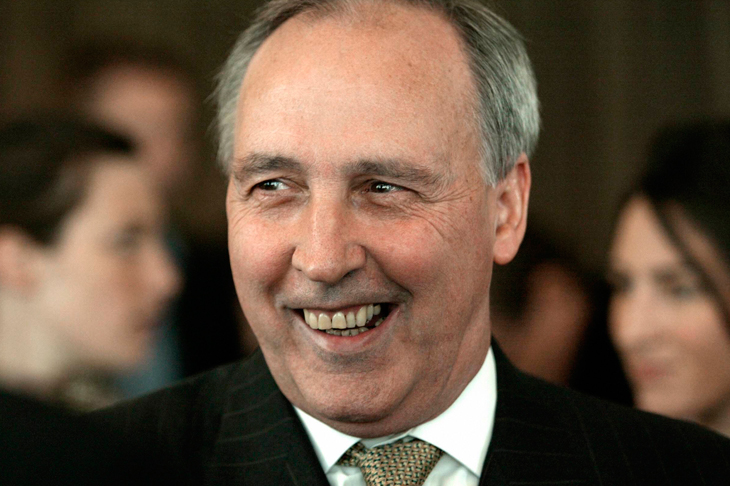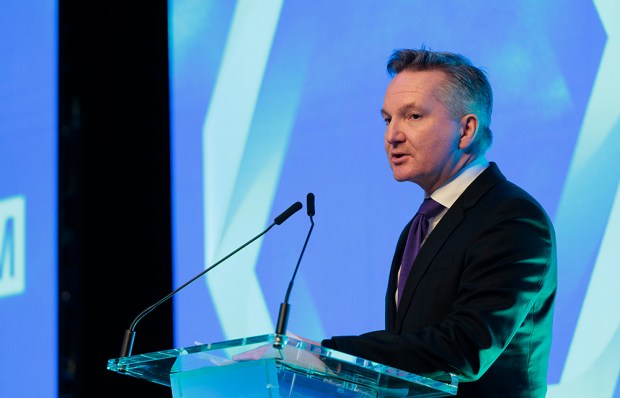It’s a festering boil on the backside of progress, but no government will lance this offensive double of PM Keating’s pro-union compulsory super scheme and Treasurer Costello’s tax-dodge gift to millionaires. This combination manages to fill both the coffers of the unions that control Labor along with the bank accounts of the rich whose financial support the Coalition desperately needs to match the (super-enhanced) flow of union funds to Labor. It also suits the rent-seekers of the financial services industry who are ripping off Australian retirees with the world’s most expensive superannuation system. Whatever sensible recommendations emerge from the current enquiry by the Productivity Commission, do not expect Liberal or Labor to undertake the needed fundamental changes to a corrupt system that the World Bank regards as ‘world’s best practice’ – which says a lot about the rest of the world or the Bank’s judgement.
Keating’s admission that the thousands of millions of dollar incubus of his compulsory superannuation scheme was not intended as a welfare measure to help lower-income groups but to benefit better-off unionists earning more than average weekly earnings, has been dealt with in these pages. But more evidence is emerging about how huge the cost has become for the rest of Australia to pay for those benefits. Apart from the $40 billion a year the Treasury calculates it is costing the revenue by way of super tax deductions, there’s the estimated up to $31 billion a year being scooped up in fees by super fund managers at the expense of superannuees. The latest official figures from APRA covering the $1.5 trillion in funds it regulates (with the Tax Office overseeing the $700 billion in self-managed funds), go nowhere near showing the real burden of costs imposed on retirees. What they do show is a clearly excessive average of eight per cent of super funds’ annual income being docked in management fees of one kind or another such as investment costs and administrative and operating expenses. For union-controlled industry funds, the average cost is reported as seven per cent, for retail funds (largely bank-owned) as 11.5 per cent and for public sector funds as 5.3 per cent (before unspecified ‘other costs’ bump this out to 13 per cent).
These official figures, on which the government relies, are utter bunkum, as APRA itself confesses: ‘Expenses are generally understated by funds….[as] indirect investment expenses that are not identifiable are generally not reported; not all funds are able to provide complete information on entry and exit fees; and current data collected does not adequately capture some expenses, such as front-end and ongoing commissions’. And funds also adopt different approaches to recognise future tax liabilities and assets. As a result, there are many wide-ranging estimates of the industry’s real costs, up to the recent $31 billion by Industry Super, $24 billion quoted last month by the Australian newspaper and the Grattan Institute’s three-year-old estimate of $20 billion. Grattan’s 2014 study, Super sting; How to stop Australians paying too much for superannuation, claimed that ‘Excessive costs in superannuation provide the greatest opportunity for micro-reform in the economy’, with fees and costs hitting customers for an average $1,300 a year. It reckons this would reduce a 30 year-old’s retirement balance by $250,000, or more than a quarter of the total. As Australia’s best-ever finance minister, (the personally unpleasant) Peter Walsh, said in his book Confessions of a failed Finance Minister: ‘Consistent with its policy of putting the interests of those with jobs ahead of those without jobs, the ACTU favoured compulsory employer-funded superannuation. It will certainly provide better retirement incomes for those who have and keep jobs — especially highly paid ones. But for others, it will (a) diminish their chances of getting a job and (b) will be a cost-ineffective investment because a very large proportion of… contributions will be gobbled up by administrative expenses. These are a dead weight social loss but a pot of gold for those, including unions, who can get into superannuation fund management’. A recent blog from ‘Gordon’ summed it up: ‘Super is a rort where funds go to cronies, union spivs, big end of town, washed-up politicians and union hacks’. Spot on!
Got something to add? Join the discussion and comment below.
Get 10 issues for just $10
Subscribe to The Spectator Australia today for the next 10 magazine issues, plus full online access, for just $10.
You might disagree with half of it, but you’ll enjoy reading all of it. Try your first month for free, then just $2 a week for the remainder of your first year.














Comments
Don't miss out
Join the conversation with other Spectator Australia readers. Subscribe to leave a comment.
SUBSCRIBEAlready a subscriber? Log in